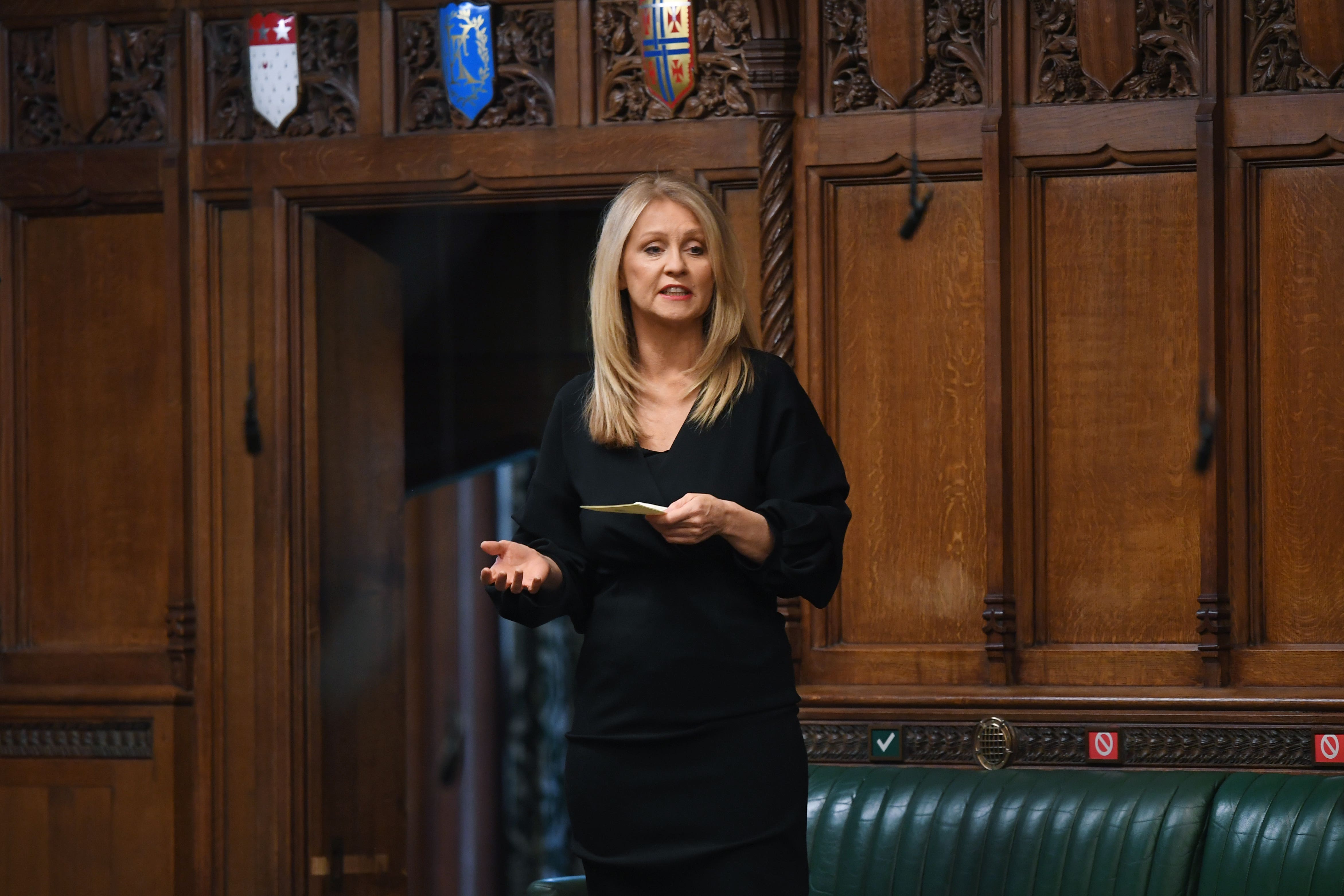First shot fired in the Conservative rebellion against tax rises
Esther McVey became the first Tory MP to say she would vote against the government, writes John Rentoul


Nothing much seemed to happen at Prime Minister’s Question time. The exchanges between Angela Rayner and Dominic Raab, deputising for Rishi Sunak who is on an overnight flight back from Indonesia, were surprisingly flat. It was only later that a backbench Conservative let off a firecracker.
Journalists who had taken their seats in the press gallery in eager anticipation of fireworks from the Labour deputy leader against a deputy prime minister at bay were instantly deflated by Rayner’s first question. She said Britain “has an unshakeable commitment to Nato and our allies, including Poland”, and asked if Raab agreed that Russian missile attacks on Ukrainian civilian infrastructure showed “the utter contempt that Putin has for international order”.
It turned out that the deputy prime minister did agree with that. There was less agreement on Rayner’s next two questions, about tax havens and Britain’s place in the world growth league table, but the back-and-forth was formulaic. Raab said the rules on non-dom status were stricter under the Conservatives than they had been under Labour, while Rayner had a good line saying the UK is 38th out of 38 OECD countries for economic growth: “If there was a world cup for growth we wouldn’t even qualify.”
Only after these ritual preliminaries did Rayner then devote her final three questions to the allegations of bullying against her opposite number. She read out her questions carefully, determined to avoid sounding too ranty, while Raab deployed his usual defensive posture of talking quietly and sounding reasonable.
I understand that Keir Starmer admires his deputy’s “instinct for politics”, and the way she can “smell” which way the wind is blowing: today her instinct was to avoid going over the top. This was wise because, as Raab shrewdly observed, she didn’t have any specific allegations to put to him.
She got in a reference to “flying tomatoes” – a reference to a report in The Sun on Sunday that he had in a fit of bad temper thrown some tomatoes from a Pret A Manger salad into a bag, but it was an incident that Raab said “did not happen”.
Her last question was to ask when the prime minister’s ethics adviser would be appointed to “drain the swamp”. Raab gave an answer that might have been assembled by a computer programme from bureaucratic jargon: “The recruitment is already under way and taking place at pace.” Then he accused her of her “usual mix of bluster and mudslinging”, and that was that. You could almost see the faces in the press gallery falling.
Andrew Gimson, formerly of The Independent and now at ConservativeHome, wrote before Prime Minister’s Questions about political journalism as a “bloodsport”, and he has a point. But he also admitted that the pack’s pursuit of alleged ministerial wrongdoing is essential to the health of our democracy: “The process is neither fair nor kind, indeed often looks, to a detached observer, monstrous. But it is one of the fiercest checks on arbitrary power that we have.”
Today, however, the bloodhounds of the media found that their quarry had escaped before blood could be drawn. There was brief excitement later, when Bambos Charalambous, a Labour backbencher, asked a good, precise question about an employment dispute involving Raab before he was an MP, when he was chief of staff to David Davis, the former shadow home secretary. But that trail went dead soon afterwards, when we realised that the case had been extensively reported some time ago.
It was only as the session was drawing to a close that Esther McVey, the Tory backbencher, was called to ask a question. She declared herself a tax cutter, saying that “the government’s financial difficulties are caused by over-spending and not under-taxing”; that HS2 was a waste of money; and that, if the high-speed rail scheme wasn’t cancelled, she refused to support “any tax rises”.
To keep up to speed with all the latest opinions and comment, sign up to our free weekly Voices Dispatches newsletter by clicking here
Her opposition to HS2 is well known, but her threat to vote against any tax rises in tomorrow’s autumn statement was the first time a Conservative MP had threatened to rebel against the new government.
This was more surprising because she supported Jeremy Hunt’s leadership campaign in July – indeed, Hunt announced that he and she were running as a joint ticket to unite the party, and that she would be deputy prime minister if he formed a government. However, Hunt won just 18 votes from MPs, and was eliminated in the first round. But now he is back in government, and she is threatening to vote against some of the measures that he is expected to announce tomorrow.
It is not clear how many measures will require votes in the Commons, and if so, when. Extending the windfall tax to renewable electricity generators probably would, and soon, while lowering the threshold for the top rate of income tax from £150,000 a year to £125,000 may not require a vote until the start of the tax year in April. But Sunak and Hunt might decide to hold the votes early to prevent the Tory backbench revolt gaining momentum.
The big test of tomorrow’s autumn statement is whether Sunak and Hunt can keep the Tory parliamentary party together. McVey is the first sign of trouble.






Join our commenting forum
Join thought-provoking conversations, follow other Independent readers and see their replies
Comments